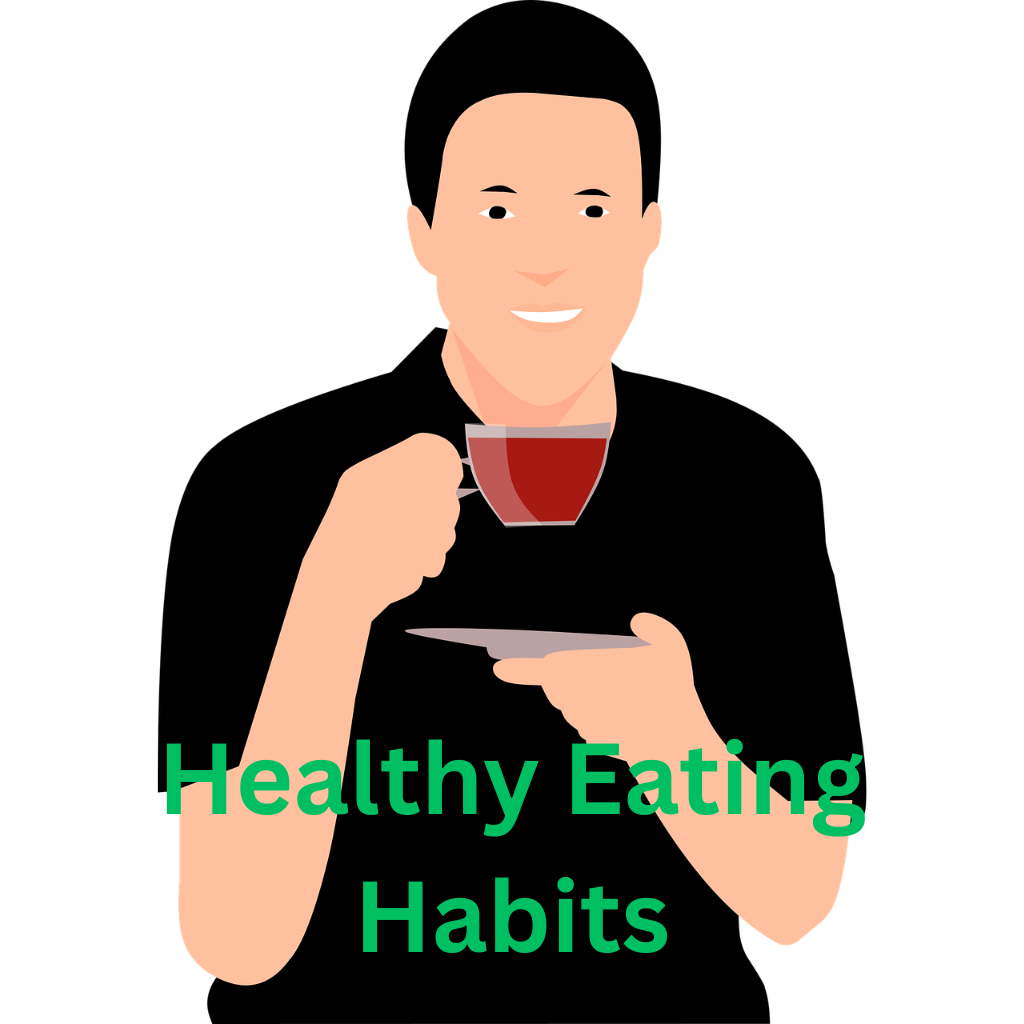Healthy Eating Habits

1. Start Your Day with a Balanced Breakfast
Skipping breakfast might seem like a time-saver, but it often leads to overeating later in the day. A balanced breakfast provides energy, improves focus, and kickstarts your metabolism.
2. Eat More Whole Foods
Whole foods—those that are minimally processed and close to their natural state—are rich in nutrients and free from harmful additives. These include fruits, vegetables, whole grains, legumes, nuts, and lean proteins.
Why it matters: Whole foods offer more fiber, vitamins, and minerals than processed alternatives, supporting overall health and digestion.
3. Limit Added Sugars and Refined Carbs
Refined sugars and carbohydrates—like white bread, candy, pastries, and sugary drinks—cause blood sugar spikes, followed by crashes that lead to fatigue and cravings.
4. Stay Hydrated
Many people mistake thirst for hunger. Drinking enough water throughout the day can prevent unnecessary snacking and aid in digestion and metabolism.
How much to drink: Aim for at least 8 glasses (2 liters) a day, more if you’re active or in a hot climate.
- Keeping you hydrated so you have energy to exercise
- Promoting healthy bowel movements and regular urination which helps to rid the body of waste and toxins
- Keeping joints lubricated
- Maintaining a healthy body temperature
- Helping to maintain a healthy weight
-
5. Practicing Yoga or Other Mind-Body Exercises
Yoga is not only an effective exercise and recovery method but it also helps to maintain a mind-body connection. The great thing about yoga is that there are all different skill levels–you don’t have to be an expert or even know what you’re doing at all! . -
7.Limit Added Sugars and Refined Carbs.
- Sugar has a bittersweet reputation when it comes to health. Sugar occurs naturally in all foods that contain carbohydrates, such as fruits and vegetables, grains, and dairy. Consuming whole foods that contain natural sugar is okay. Plant foods also have high amounts of fiber, essential minerals, and antioxidants, and dairy foods contain protein and calcium.
- Refined Carbs also digested quickly, and have a high glycemic index. This means that they lead to rapid spikes in blood sugar and insulin levels after meals.
-
7. Eat less salt: no more than 6g a day for adults.
- Eating too much salt can raise your blood pressure. People with high blood pressure are more likely to develop heart disease or have a stroke.Even if you do not add salt to your food, you may still be eating too much


